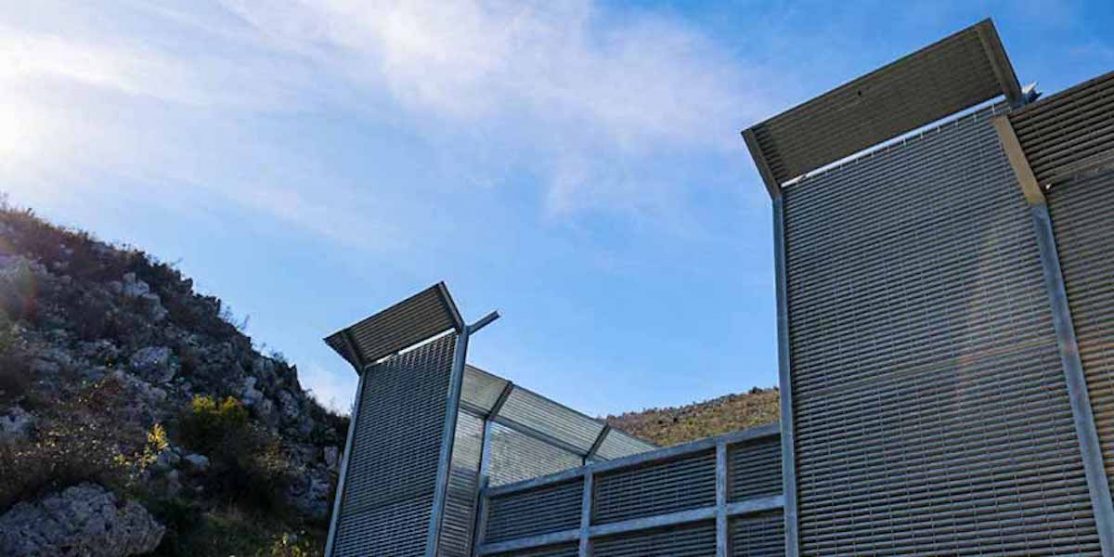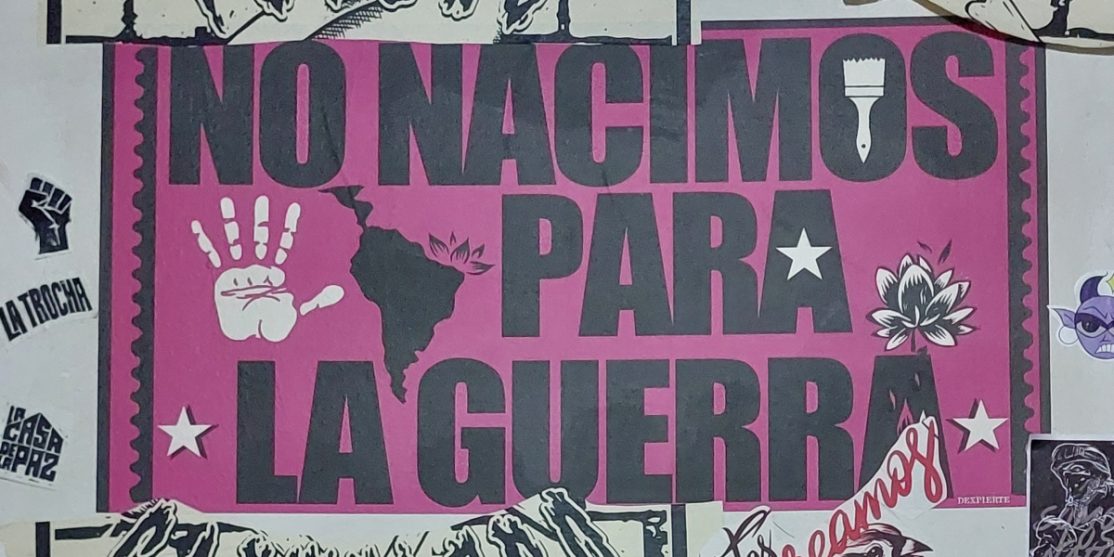DIRITTI
31M Rights are no Foreigners | 1J 2J The Zero Factory
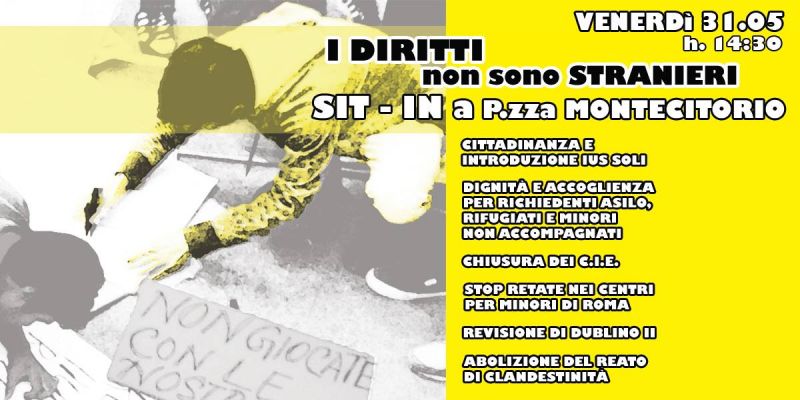
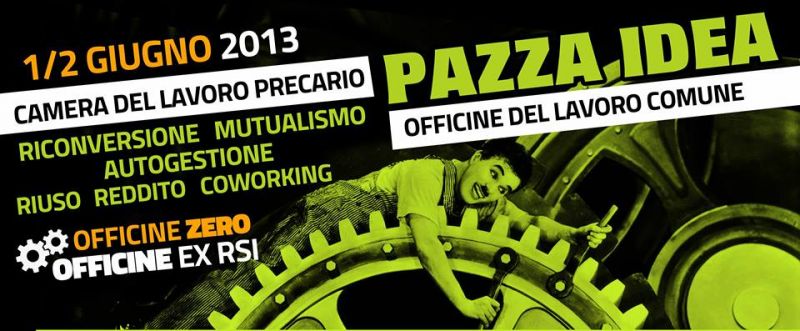
June 1st and 2nd 2013. OZ – Officine Zero take life!
After a year and a half of occupation, the ex-RSI factory (Officine ex-Rsi, former Compagnie des Wagons-Lits) takes life again with a new and ambitious project. Now that the owners have gone bankrupt, a social coalition of blue-collar workers, students, precarious and self-employed workers, will reopen the gates of the factory to regenerate it.
A new life, where the bosses produced failure, exploitation and speculation.
On June 1st and 2nd we’ll reoccupy the factory to re-employ ourselves. The Officine Zero (OZ) are coming to life.
Zero bosses, Zero exploitation, Zero pollution.
The beginning of a project aimed at:
1. Ensuring the working future of the factory’s 33 workers
2. Safeguarding the productive nature of the site
3. Reconvert and regenerate the factory
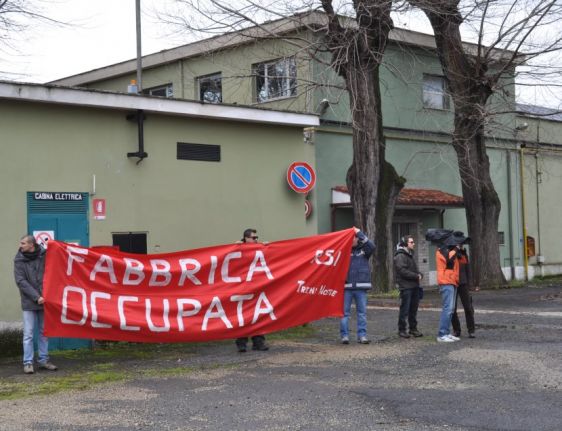
The factory (a site for night train maintenance) was occupied on February 20th 2012 by its workers, with the active cooperation of a nearby social centre and of the local neighbourhood social platform. Since the beginning, a wide range of social networks and movements supported the struggle.
A few hundred meters off Tiburtina Station, the central hub for high-speed trains and the object of a massive infrastructure intervention affecting an entire portion of town, the factory soon became a symbol of the crisis’ paradoxes. The company was acquired in 2008 by Barletta Srl, a business group that had no intention of relaunching train maintenance activities but aimed at halting production for the sake of property speculation. Make money on the real estate market rather than engaging in production: 33 persons and their life-long skills and knowledge thrown away.
But the Officine also became a symbol of resistance to the crisis. Despite many fears and difficulties, and thanks to a fairly wide social support, the workers managed to occupy a factory in the heart of the city, creating an occasion for old and new forms of labour to meet.
After more than 15 months of occupation – marked by moments of intense participation and others of great difficulty, with insitutions failing to respond – the struggle is now at a turning point. In September 2012 the “laboratory for reconversion” was created, with the help of architects, economists, experts in the field and activists. Months spent designing a concrete alternative to speculation, to relaunch and regenerate production and give the workers a chance to reuse their knowledge and skills.
On May 3rd 2013, the Court declared the company’s bankruptcy: an intense acceleration for the project. A series of crowded public assemblies followed, to further develop the work of the reconversion laboratory: the “Mad Idea” of the Officine Zero started taking form. A project born out of the factory, as a part of the workers’ struggle and of their labour dispute. An alternative to speculation for the site, that integrates train maintenance within a wider framework, based on a mix of training and production, workers self-protection, mutualism and cooperation.
This also thanks to the contribution of many precarious and self-employed workers, that since a few months were actively exploring new forms of self-organisation. The idea is to create a “co-working” space and a “chamber of labour and welfare”: a space where to produce in common, connecting knowledge and skills; and a device to create the services and tools needed to support precarious workers in their labour controversies and in the struggle for a universal welfare (basic income, education, health care, pensions) and against unemployment.
The virtuous exchange between these two axis of work – the “laboratory for reconversion” and the efforts of precarious workers to “organise the unorganisable” – makes it possible to imagine a new experience where different productive actors can recombine to resist the crisis and invent alternatives.
At the heart of the project, is the idea that the skills of train maintenance workers can be partially (and perhaps even temporarily) reused for a service of public utility: training in the area of recycle and reuse, renewable energies, new and old forms of artisanal work. Throughout Europe, reuse and new forms of craftsmanship are producing new economies where social and environmental compatibility go together. The Zero Factory starts its journey right from the roots of the labour movement, uniting what the bosses want to divide: conflict, mutualism, autonomous production.
The Zero Factory is a factory of common work, whose main product is union, where bosses and managers do not exist, strategies are commonly discussed and decisions commonly taken. A space for co-working and self-management, artisanal work and self-training.
The Zero Factory is a chamber of precarious and self-employed labour, where precarious workers, freelancers, students can find the services and space they need to organise, unite, practice mutualism as a way out of fragmentation and loneliness.
The Zero Factory is a self-managed student house, in a city where services for university students are almost non-existent, where it is impossible to emancipate from the family of origin.
The Zero Factory is economic, social and environmental reconversion, inclusive of the proposals developed and designed by the local community and aimed at keeping together the dignity of labour and environmental balance. For social wealth and solidarity to be given back to the local community.
On June 1st and 2nd: Officine Zero start again and not from zero!
Two days of workshops, public events, laboratories. To present a project of resistance to the crisis.
To reinvent our present beyond the odds of the present.
For the programme of events, see Italian version
OZ Officine Zero
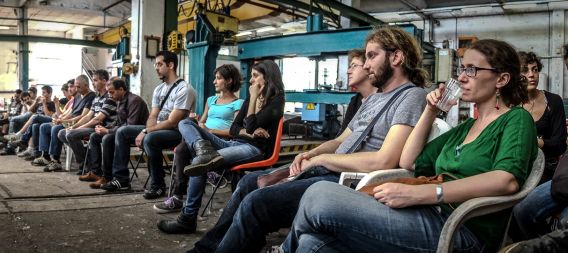
See also, in Spanish (2012):
Ocupemos la fábrica (Desinformémonos, fotoreportaje)
Trabajadores italianos: con las herramientas y el destino en sus manos (Desinformémonos, 21-05-2012)
Ocupar, producir y resistir en Roma (lavaca, 13-03-2012)
Blog of the first weeks of occupation (Italian, february-march 2012)

